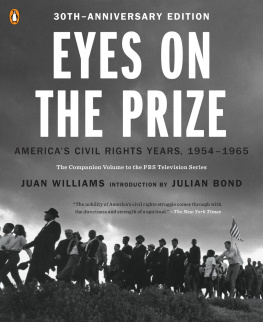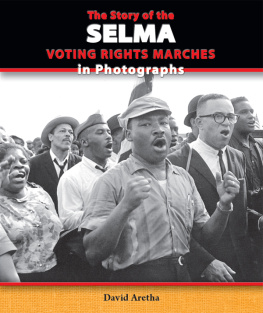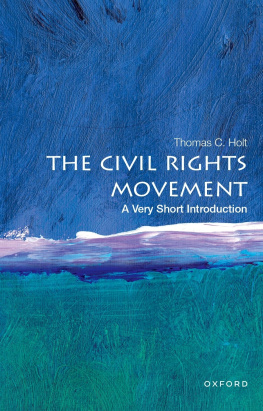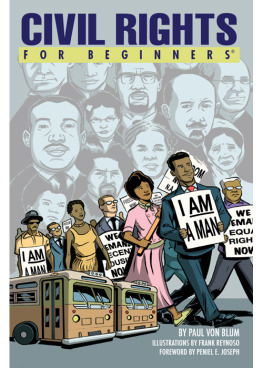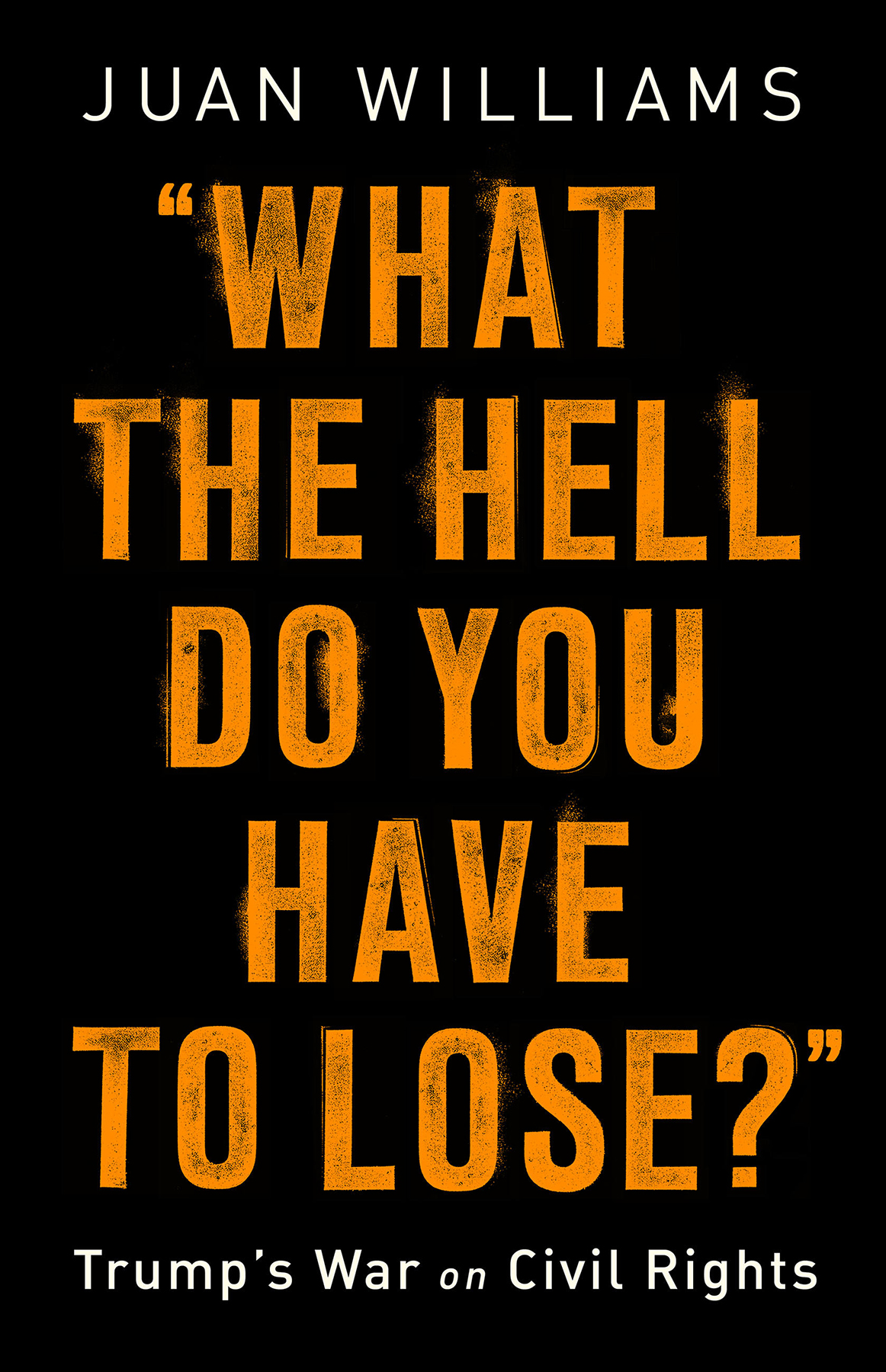Copyright 2018 by Juan Williams
Hachette Book Group supports the right to free expression and the value of copyright. The purpose of copyright is to encourage writers and artists to produce the creative works that enrich our culture.
The scanning, uploading, and distribution of this book without permission is a theft of the authors intellectual property. If you would like permission to use material from the book (other than for review purposes), please contact permissions@hbgusa.com. Thank you for your support of the authors rights.
PublicAffairs
Hachette Book Group
1290 Avenue of the Americas, New York, NY 10104
www.publicaffairsbooks.com
@Public_Affairs
First Edition: September 2018
Published by PublicAffairs, an imprint of Perseus Books, LLC, a subsidiary of Hachette Book Group, Inc. The PublicAffairs name and logo is a trademark of the Hachette Book Group.
The publisher is not responsible for websites (or their content) that are not owned by the publisher.
Library of Congress Cataloging-in-Publication Data
Names: Williams, Juan, author.
Title: What the hell do you have to lose? : Trumps war on civil rights / Juan Williams.
Description: New York : PublicAffairs, [2018] | Includes bibliographical references and index.
Identifiers: LCCN 2018015518 (print) | LCCN 2018033869 (ebook) | ISBN 9781541788275 (ebook) | ISBN 9781541788268 (hardcover)
Subjects: LCSH: African AmericansCivil rights. | African AmericansSocial conditions. | African AmericansHistory. | Civil rightsUnited StatesHistory. | Civil rights movementsUnited StatesHistory. | Trump, Donald, 1946- | RacismUnited States. | United StatesRace relations. | United StatesPolitics and government2017
Classification: LCC E185.615 (ebook) | LCC E185.615 .W49157 2018 (print) | DDC 323.1196/073dc23
LC record available at https://lccn.loc.gov/2018015518
ISBNs: 978-1-5417-8826-8 (hardcover), 978-1-5417-8827-5 (e-book)
E3-20190504-JV-PC-AMZ
This book is dedicated to Herbert H. Denton Jr.[19431989] and Henry Hampton[19401998]mentors. Call all to the light; praise the good and the right.
D URING HIS SUCCESSFUL CAMPAIGN for the presidency, Donald Trumps message to black voters was that supporting Democrats left them with bad schools, high crime, and higher unemployment. In asking them to join his campaign, Trump famously threw an explosive and simple question at black people: What the hell do you have to lose?
The president should know the answer.
When Trump was seven years old in 1954, the Supreme Court in the famous Brown v. Board of Education case outlawed racially separate public schools.
Then, when he was eighteen, Congress passed the 1964 Civil Rights Act, opening the way to an era of rapid progress in race relations.
Now seventy-two years old, Trump has lived through the astonishing growth in the black middle class. He just has to pick up the paper to see incredible advances in black political power that have taken place in his lifetime, including the election of the first black president.
As a casino owner, beauty competition sponsor, and television personality, he had a front row seat from which to watch the rush of black talent to the front line of the nations culture from music (Michael Jackson), to beauty contests (Vanessa Williams as the first black Miss America), to television (Oprah) and sports (Michael Jordan).
Having attended a military academy for high school, Trump might have noticed that in 1980 Vincent Brooks became the first black student to lead the cadets at West Point. How about the front-page headlines that greeted Colin Powell when he became the first black chairman of the Joint Chiefs of Staff in 1989? Did he miss that too? These days, trailblazing black people hardly get any attention. In 2017, when Simone Askew became the first black woman to lead the cadets at West Point, it was buried inside the papers. I can understand if Trump missed that one.
As a businessman, however, he could hardly have ignored the rise of black people into the ranks of top executives. In his time, a black woman broke through racial and gender ceilings to become the head of Xerox. In his lifetime, black men have taken the top jobs at American Express, Merrill Lynch, Merck, and Time Warner. He saw entertainment moguls Bob Johnson and Oprah Winfrey become the worlds first two black billionaires, reaching a threshold he himself often claims to have achieved, though the record is far from clear. And at Carnegie Hall, just a few blocks from his Fifth Avenue apartment, Trump might have noticed that another black billionaire, Robert F. Smith, made the front pages when he was elected as chairman of the board.
Im just seven years younger than Trump. But Im black. The changes he sniffed at make up the prime story of my lifetime.
Let me boil this down for Trump. Take a look at two menmy father and meand do a generational comparison.
The difference between the life my father led as a black manhe was born in 1902and the life I lead today as a black manI was born in 1954are so different I might as well live on another planet.
As a first stop, go to restaurants in downtown Washington, DC. They were closed to my dad and other black people as late as the 1960s. Today Ive been welcomed in fancy restaurants in DC and even farther south, from Richmond to Birmingham to New Orleans. The same is true for hotels that kept out my dad. How about housing? I bought my first house in a neighborhood once governed by restrictive covenants that legally banned a black man like my dad from buying a house. My fathers heart would have swelled with pride and wonder to see my daughters Georgetown law degree. Georgetown University did not accept its first black student until the 1950s. And what might Daddy have said about me having lunch with another black man at the White House, when he realized the other guy was Barack Obama, the first black president of the United States?
Hed say thats a different planet. I agree. And wed both give thanks for all the progress toward racial equality in a nation whose founding ideals of liberty and justice have always sat uncomfortably beside the reality of slavery.
The country still has a long way to go before approaching racial equality. But the revolution in race relations during the last fifty yearsthe majority of Donald Trumps lifehas been absolutely mind-boggling.
Instead of asking black people what they have to lose by voting for him, Trump needs to ask himself, How the hell did I miss all of this?
But lets be honest. Trump did not just happen to overlook it. He intentionally put on blinders because he finds comfort and political advantage in seeing a distinctly different reality. He wants to see black failure and misery. That view justifies his distaste for black peoplesome might say his racism. He locks his eyes on the worst of black American life because it makes him and other white people into victims of the trouble in black neighborhoods; he is the hero defending whites against the approaching barbarians.
On the campaign trail he used his awful depiction of black life as a regular feature of speeches to whip up his heavily white campaign crowds.
Trump has opened the door to assertions of white identity and resentment in a way not seen so broadly in American culture in over half a century, according to those who track patterns of racial tension and antagonism in American life, the New York Times reported near the end of the 2016 presidential campaign.


